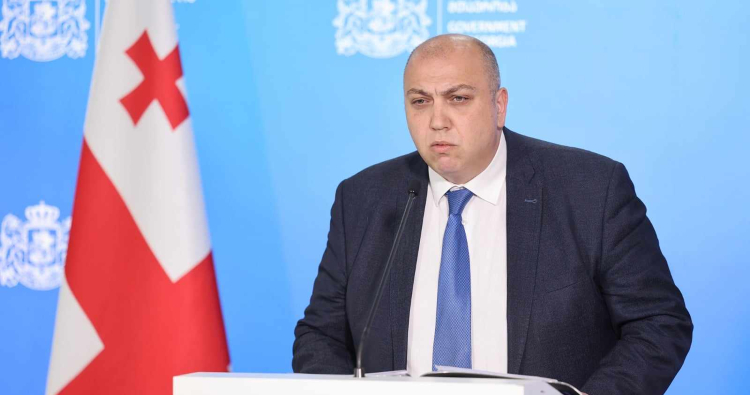Infrastructure Minister rejects “artificial fear” around Rikoti Highway construction as “groundless”

Karseladze also responded to “false allegations” from the opposition with regards to the construction companies and said none of the four contractors involved in the construction had been on sanctions lists at the time of the signing of their contracts. Photo: Ministry of Infrastructure
Georgian Infrastructure Minister Irakli Karseladze on Monday rejected what he called “artificial fear and tension” around the construction of the Rikoti Highway in central Georgia as “groundless”, following claims by a part of the domestic opposition about environmental issues of the project and possibility of selection of contractor companies under international sanctions.
Karseladze said an environmental impact assessment had been prepared for “all four sections” of the Highway and “approved by international financial institutions”, adding 23 environmental experts, independent consultants, departmental specialists and professionals from contractor and international supervisor companies were involved in the works.
He noted traffic had been switched to a “special mode” on the kilometre 149 section of the Highway due to a threat of landslide detected by monitoring, adding “everything” had been done in advance to “reduce the danger as much as possible” and pledging traffic was safe from risks in the location.
Karseladze also responded to “false allegations” from the opposition with regards to the construction companies and said none of the four contractors involved in the construction had been on sanctions lists at the time of the signing of their contracts.
He pointed out selections of contractors were made using sanctions lists by international institutions financing projects in question, instead of sanctions lists of individual countries or other organisations.
The Minister emphasised “no contract” had been signed with any sanctioned company according to procedures of international financial institutions, and noted all four companies had “fully complied” with specifications for the bids.
He also explained the Highway works featured FIDIC-type contracts, different from ordinary deals for Government agreements, and added the documents represented requirements for international financial institutions' tender documentations.
 Tweet
Tweet  Share
Share